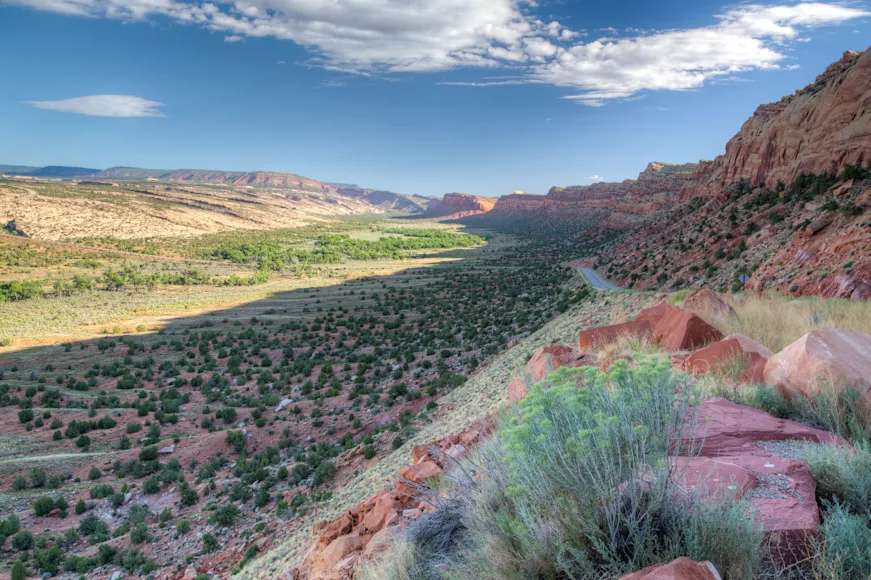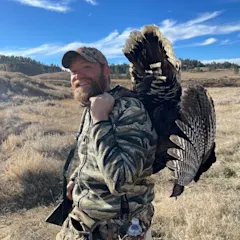Americans are celebrating today after Mike Lee finally admitted defeat in his weeks-long quest to force a massive sell-off of federally managed public lands into the Senate’s omnibus budget bill. Lee posted about the provision’s demise on X last night after several western senators threatened to strip it from the bill with an 11th hour amendment, and a coalition of Republicans in the House said they wouldn’t vote for it even if it passed the Senate intact.
“I was unable to secure clear, enforceable safeguards to guarantee that these lands would be sold only to American families,” Lee wrote, “not to China. Not to Blackrock. And not to any foreign interest.”
As Field & Stream has previously reported, Lee initial plan would have mandated the sale of up to 3 million acres of public land. That provision applied to Bureau of Land Management (BLM) and United States Forest Service (USFS) lands. And it would have drawn from an eligible pool of more than 250 million acres across 11 western states.
After public outcry and a decision by the Senate Parliamentarian that this sell-off didn't conform with critical policy rules, Lee scaled the provision back to 1.2 million acres of mandated land sales. The latest version targeted high-value BLM lands near vaguely defined “population centers.”
His amended proposal, however, did nothing to quell the uprising against him. Prominent bowhunter and media personality Cameron Hanes made repeated social media posts refuting Lee's claims and urging his 1.7 million Instagram followers not to support a single acre of public land being sold in a budget bill. Comedian and podcaster Joe Rogan shared several of Hanes' posts.
Randy Newberg, the host of Fresh Tracks, and the Hunt Talk Radio and Elk Talk podcasts, said Lee was trying to pay his own political debts with America’s public lands. “Mike Lee is handing out huge breaks in the form of reduced royalties to the oil and gas industry,” said Newberg in a recent episode of Fresh Tracks Weekly. “He’s got to find a way to pay for it, and he’s paying for it by selling our public lands.”
Backcountry Hunters and Anglers CEO Patrick Berry tells F&S that BHA generated upwards of 138,000 calls and emails from members opposed to Lee’s land grab. “This is an example of how a grassroots base can win against what seem like insurmountable political odds and momentum,” Berry says. "This defeat is historic. Lee's provision would have unleashed a tidal wave of privatization that would have locked hunters and anglers out of public lands they already own. Every single person that made a phone call or wrote an email should take tremendous pride in what we managed to accomplish as a community.”
Chris Wood, President and CEO of Trout Unlimited, echoed Berry's sentiments in a statement shared with Field & Stream last night. "Public lands are the cornerstone of our conservation legacy, uniting us with the last best places this country has to offer," Wood said. “We thank the members of Congress who have joined hundreds of thousands of outdoorsmen and women in opposing widespread public land selloffs in [budget] reconciliation. This is certainly not the first attempt to privatize or transfer our public lands, and it won’t be the last. We must stay vigilant and defend the places we love to fish, hike, hunt, and explore.”
Joel Pederson, CEO of the Theodore Roosevelt Conservation Partnership, told F&S that it took a broad coalition of public land advocates from across the political spectrum to defeat Lee's sell-off provision. "The unification was unlike anything I've seen in the last couple decades of my career, " says Pederson. "From the environmental community to the hunting and fishing community—really anyone that enjoys our public lands banded together with one unified voice. It's a great testament to what we can do together."
Lee, who chairs the Senate's Energy and Natural Resource Committee, accused his critics of spreading misinformation and "in some case outright lies." And he reiterated his long-stated view that the federal government manages too much public land. "It is mismanaging and in some cases ruining [land] for the next generation," his statement reads. "Under Democratic presidents, large swaths of the West are being locked away from the people who live there, with no meaningful recourse."
In addition to the land sale provision, the Senate removed a portion of Lee's bill that would have forced permitting for the controversial Ambler Road—a proposed 211-mile industrial mining road through the heart of Alaska's Brooks Range. But the budget bill still includes a provision that requires oil and gas leasing in the pristine Arctic National Wildlife Refuge.
Berry says that the fight to keep public lands from being included in future sell-off schemes that circumvent public input is far from over. "I think we all remain on guard from what's coming next from Mike Lee, but We've shown that we can beat this back regardless of the scope and scale," he says. "And anyone else who'd like to sell off public lands. He's not alone. He just happens to be the face of it right now."


